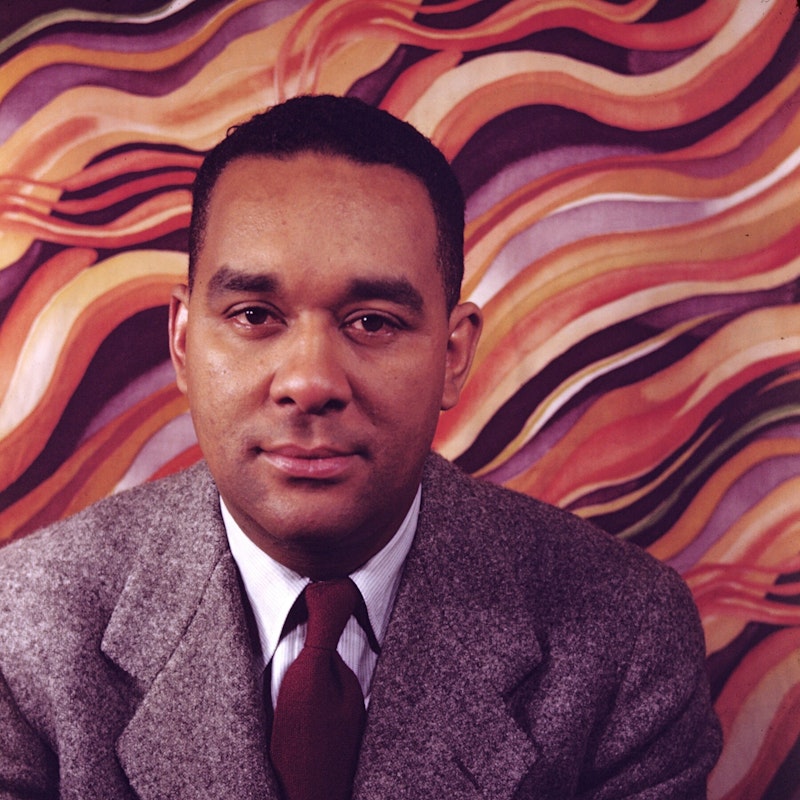Richard Wright’s most famous works are about the horrors of racism. They focus on protagonists who are in many respects circumscribed in their humanity and limited in their understanding. Wright’s memoir, Black Boy (1945) is about his younger self, and builds its pain, ironies, and tragedies on the distance between what Wright, the writer, knows now and what Wright, the child in the Jim Crow south, couldn’t and wasn’t allowed to know. His famous novel, Native Son (1940) centers on a yearning, uneducated, Black man named Bigger Thomas, whose overwhelming oppression leaves him with little inner life other than a consuming rage. As Ralph Ellison said in a devastating 1963 critique, “Wright could imagine Bigger, but Bigger could not possibly have imagined Richard Wright. Wright saw to that."
Wright died in 1960, before Ellison’s essay appeared. His final work, though, anticipates and to some degree refutes Ellison’s argument. In his last two years of life, Wright wrote some 4000 haikus. Of these, 817 were printed in a 1998 book titled Haiku: This Other World. Wright still acknowledges racism and its harms in flashes and sideways glances. At the time Wright was living in exile in France, where his ability to travel and publish was restricted by FBI surveillance and persecution. Despite that context, though, the poems do exactly what Ellison accused Wright of failing to do in Native Son: they explore the full limits of Wright’s own imagination, wit, and sensitivity.
Wright hewed close to the haiku’s formal and thematic requirements; almost all the three-line poems keep to the 5-7-5 syllable count, and most focus on nature, taking care to mention a specific season.
Within those strictures, though, Wright’s haikus are recognizable and idiosyncratic. He’s especially fond of shuffling cause and effect, so different parts of a landscape or scene engage in an unexpected organic dialog.
688
The autumn river
Utters one long crow cry,
Then rustles again.
253
From a tenement
The blue jazz of a trumpet
Weaving autumn mists.
These poems are about the natural world and its juxtapositions. But they’re also about the writer’s mind and how it moves in the poem, linking together metaphors or images. The trumpeter here is a stand-in for Wright, who puts the autumn mists on the page, taking an art form associated with Black creators and “weaving” or transforming it into a different tradition, which is his simply because he lets his own creativity and imagination claim it.
Some of my favorites are those in which Wright, or a narrator, is included more directly.
494
Turning a corner,
I duck my head to dodge
A new winter moon.
1
I am nobody:
A red sinking autumn sun
Took my name away.
772
The autumn wind moans:
I would like to talk to her,
If she were here now.
Wright’s place in his poems feels precarious, as if he’s uncomfortable or out of place in his own head. The moon that he (as the poet) has hung in the sky jumps out at him, almost bonking him on the head. The autumn sun sinks, taking the narrator’s name and self with it, in a poem that could evoke a kind of transcendent oneness with nature, or could be about a sick man’s approaching death. In poem 772, Wright listens to the wind, and then thinks he would like to talk to “her”—which could mean that he wants to talk to the wind itself, or could mean he wants to talk to a dead or absent friend or lover. Outside world and inside world mirror each other and slide into one another, like the wind slipping through cracks in a door.
Wright isn’t abandoning the concerns of his earlier books. Given who he is, and what he’s written about the criminal justice system, you have to read haiku 596 (“A blue butterfly/Dips over a prison wall/Then slowly returns.”) as informed by a knowledge of who usually fills prisons. Blue butterflies can go in and out at their own pace. Black men, and Black women, generally have much less freedom—except perhaps in their minds, which, like Wright’s, can still fly.
“Wright began with the ideological proposition that what whites think of the Negro's reality is more important than what Negroes themselves know it to be," Ellison argued. He believed Wright was focused on oppression rather than liberation, and that to describe the experience of imprisonment, Wright put his mind behind bars. Whether you think that criticism is fair or not, no one could apply it to Wright’s Haiku. Ill, dying, (very reasonably) bitter, Wright took up his pen, every day, obsessively, and counted himself into the syllables of birds, sun, snow, seasons, his own power of creation. Wright’s thought of as a writer who spent his life delineating the bars of his cage. But his last, great work is a description of freedom.
337
Blue-black beak open,
The crow hurls a caw straight at
A sinking red sun.

